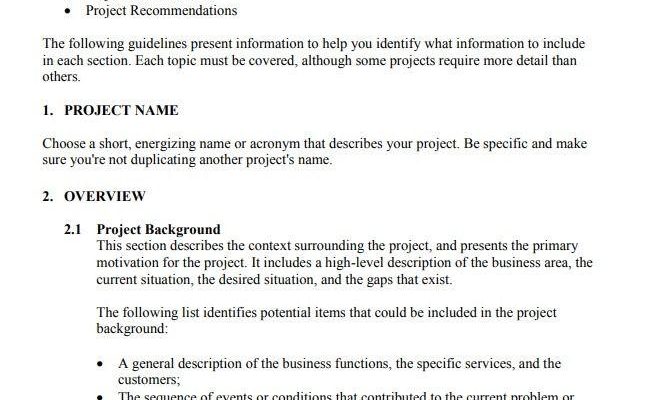
In the intricate tapestry of life, each thread weaves a narrative colored by our experiences, dreams, and the obstacles we encounter along the way. We often find ourselves standing at the crossroads of determination and doubt, where the whisper of excuses can drown out the call of our true potential. This article delves into the art of overcoming obstacles, not merely by sidelining our strongest excuses, but by embracing the strength that lies beneath them. Through anecdotes, insights, and practical strategies, we will explore how acknowledging our challenges can lead to profound personal growth and resilience. Join us on this journey of self-discovery, as we learn to transform barriers into stepping stones and discover the unyielding strength that resides within us all.
Navigating the Landscape of Personal Resistance
In the journey of self-discovery and growth, individuals often find themselves facing a myriad of internal barriers. These personal resistance points manifest as doubts, fears, or ingrained habits that prevent progress. To confront these self-imposed limitations, one must first become aware of their origins and confront them head-on. Acknowledging the narratives we repeat to ourselves is crucial; they often take the form of:
- Self-doubt: An ever-looming shadow that questions our abilities.
- Fear of failure: The paralyzing thought of not living up to expectations.
- Comfort zones: The false sense of security tied to familiarity.
Understanding these barriers gives us the opportunity to deconstruct them. As we navigate the landscape of resistance, one strategy stands out: reframing our thoughts. By shifting our perspective, we can transform a negative narrative into a motivational force. Consider the following table, which illustrates this reframing process:
| Negative Narrative | Reframed Perspective |
|---|---|
| I can’t do this. | This is a challenge I can learn from. |
| What if I fail? | What if I succeed and learn something valuable? |
| I might embarrass myself. | Every experience is a step in my growth. |
By actively practicing reframing, we can dismantle the psychological barriers that stifle our potential and replace them with empowering beliefs. This transformation not only fosters resilience but also builds a foundation for embracing strength beyond even our strongest excuses.
Transforming Excuses into Empowering Strategies
Excuses often serve as comfortable cushions, shielding us from the discomfort of taking that first step towards our goals. Instead of allowing those justifications to anchor us in stagnation, we can flip the narrative and transform them into actionable strategies. For instance, when faced with the excuse of “I don’t have enough time,” we can pivot to planning our schedules more efficiently or prioritizing essential tasks. This shift in perspective not only fosters accountability but also unlocks a reservoir of potential within us, prompting a deeper exploration of our capabilities. By reworking the dialogue from limitation to opportunity, we create pathways rather than barriers.
To effectively convert excuses into empowering strategies, we can employ a few core tactics:
- Identify Triggers: Recognize what prompts your excuses and address these directly.
- Set Achievable Goals: Break larger tasks into smaller, manageable steps to maintain momentum.
- Seek Support: Surround yourself with individuals who encourage action and perseverance.
- Monitor Progress: Keep track of achievements, no matter how small, to build confidence.
For further clarity, here’s a simple comparison table emphasizing common excuses and their potential counter-strategies:
| Common Excuse | Empowering Strategy |
|---|---|
| I’m too busy | Time-blocking and prioritizing key tasks |
| I don’t have the skills | Engaging in online courses or tutorials |
| I fear failure | Reframing failure as a learning opportunity |
| It’s too risky | Conducting research and creating contingency plans |
Cultivating Resilience: Tools for Lasting Change
In the journey of self-discovery and growth, resilience is our greatest ally. It acts as a buffer against the bumps along the road, allowing us to navigate challenges with grace. To cultivate this resilience, one must equip themselves with tools that foster mental fortitude and adaptability. These tools can include:
- Mindfulness Practice: Engaging in mindfulness can help center thoughts and emotions, allowing for clearer decision-making.
- Positive Affirmations: Regularly practicing affirmations fosters a belief in our abilities, creating a foundation of self-confidence.
- Support Networks: Building a community of friends, family, or mentors can provide crucial encouragement and different perspectives during tough times.
- Goal Setting: Breaking down larger ambitions into achievable tasks can make the journey feel less daunting and more manageable.
Moreover, understanding obstacles as opportunities for growth changes our perspective and reduces the power of excuses. Each setback can be viewed as a learning experience, which is essential for long-term change. A practical approach involves assessing both **physical** and **emotional** resources available to us. Consider the following table to identify your strengths:
| Type | Resource | How It Helps |
|---|---|---|
| Physical | Exercise | Boosts mood and energy levels. |
| Emotional | Journaling | Clarifies thoughts and emotions. |
| Cognitive | Learning | Enhances problem-solving skills. |
| Social | Networking | Provides new opportunities and insights. |
With these strategies, we can begin to forge a path toward embracing strength that transcends our strong excuses, enabling us to truly overcome the obstacles we face. Engaging with each of these resources can lead to profound transformation, empowering us to thrive even in adversity.
Key Takeaways
As we navigate the winding path of life, it’s important to recognize that obstacles are not merely hindrances but opportunities masked as challenges. Embracing our inherent strength requires us to confront our strongest excuses, transforming them into stepping stones for growth. By reframing our perspective, we discover that resilience is not the absence of difficulty, but the courage to rise above it.
As you close this chapter, remember that within each of us lies the potential to turn adversity into advantage. The journey toward overcoming obstacles is ongoing, but every step taken in defiance of our excuses brings us closer to our true selves. So, take a deep breath, acknowledge the hurdles you’ve faced, and step boldly into the realm of possibility. The strength to overcome resides within you—embrace it, cultivate it, and let it guide you forward.











